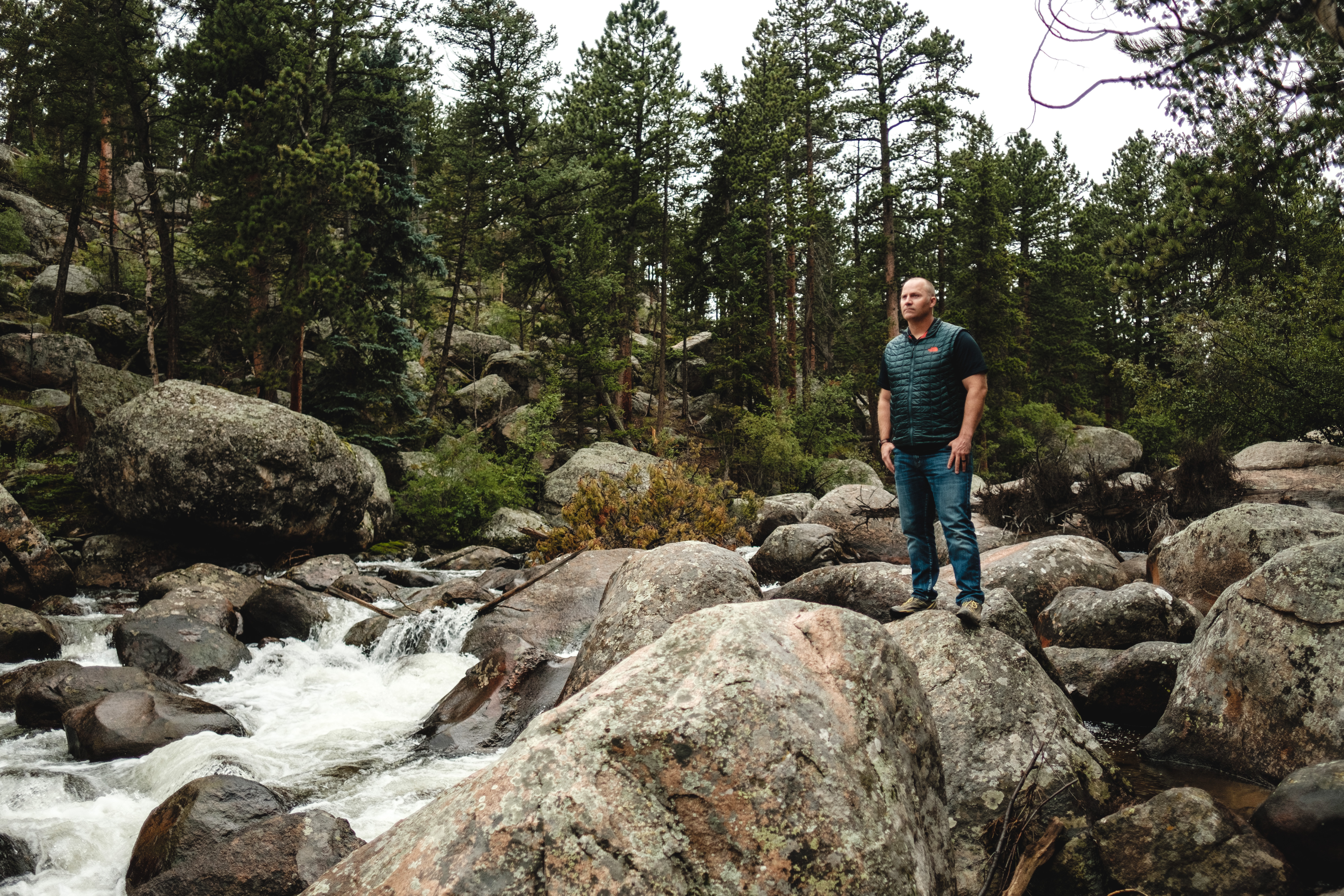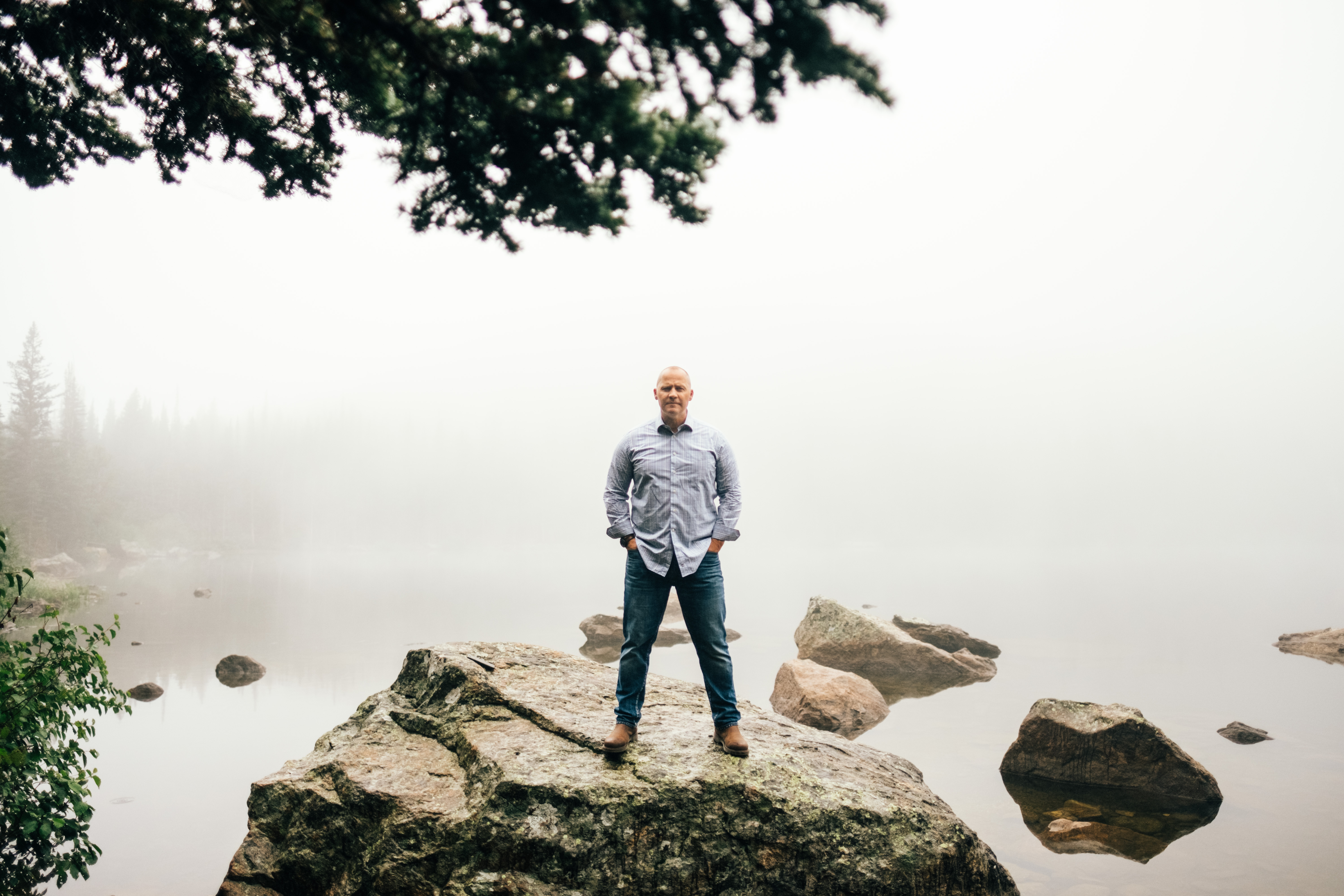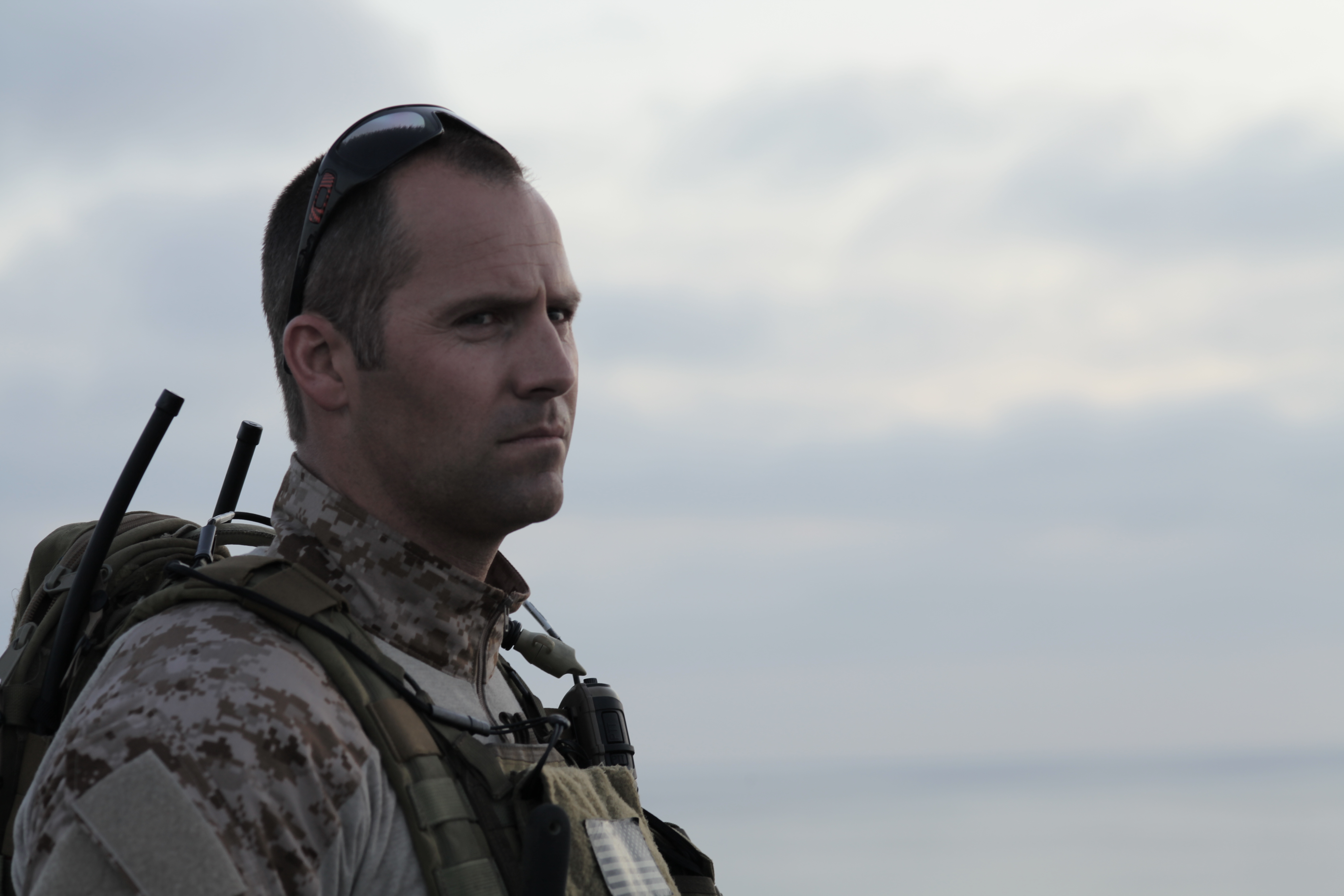Failure. Rejection. Complacency. These words don’t exist in the vocabulary of Rorke Denver.
Denver is an intelligent man, make no mistake. After all, he has squeezed two decades of service as a Navy SEAL officer, active combat on more continents than most people will ever visit, two authored books, married his wife and had two daughters into one lifetime.
And for this Navy-SEAL-turned-entrepreneur, there are still many more years to go.
It All Started With Winston
“My personality is very much geared toward being competitive and succeeding, but also having an impact on those around me more so than individual accomplishment,” Denver told Kinute.
A Bay Area native, Denver was unimpressed with the tech boom that swept through his beloved Californian stomping grounds soon after he graduated from high school. Not interested in serving under the throne of Silicon Valley, Denver put the entire West Coast in his rearview mirror when he headed to Syracuse University in New York to play lacrosse.
By that time, Denver already had a deep love for the outdoors. It was rooted in his bones after a lifetime of sports and outdoor activity with his parents and brother.
Denver was known to be found with his nose in a book just as much as he was with his feet in the earth. Self-described as a voracious reader, Denver believes it is his insatiable hunger for books and the outdoors that have taught him just about everything he needs to know, much more than lessons learned within the four walls of a classroom.
“I really struggled in that environment,” Denver said of the traditional school setting. “Sports kicked open doors that wouldn’t have been open otherwise for me.”
During his lacrosse era, Denver and the rest of the Syracuse team snagged two national championships. By the time he was a senior, Denver was lacrosse captain.
But still, the athlete wanted more. With equal levels of interest in art, literature, math and science, Denver was stuck in a sort of directionless joie de vivre as his college career came to a close.
Until he was acquainted with one Mr. Winston Churchill.
“It was My Early Life, a book my dad sent me in my senior year,” the Navy SEAL recalled. “Something about that book, this call to service, earn your stripes, cut your teeth as a man type approach called to me.
“So I put that book down and I knew that I wanted to serve.”
In terms of enlisting, Denver knew that he could walk into any military recruitment office and walk out with a private rank and a bootcamp reservation before he had barely finished uttering his name and the phrase “I would like to serve in the military,” but that would have just been too easy.
So, instead, Denver marched up to the recruitment desk.
“I want to be a SEAL,” he said, no questions, no ifs, no buts. He applied for Navy SEAL officer training, a program that chews up and spits out over three-quarters of all applicants. He gathered up his letters of recommendation, grueled through academic tests and midnight rounds of push-ups, inching his physical endurance ever-closer to the steely strength of a SEAL.
“That sounded like the right challenge,” Denver laughed. “Since I grew up on the water, I figured I had a good shot at it.”
It took seven months for the military to process his application. Finally, the mail came, the Navy’s decision to bring Denver into its elite officer program enclosed. The fate of Denver's hard work was contained in one single crisp white envelope.
Rejected.
“Any young person considering the officer path has got to remember this: there will be people more qualified than you,” Denver said, “But do they want it more than you?”
Instead of giving that rejection a frame and hanging it up front-and-center in his mind, it became fuel for the fire. A meaningless piece of paper.
“I just don’t deal with somebody telling me that I can’t do what I want to do,” he said, matter-of-fact. “I don’t think I sat on that rejection letter more than a month before I started working out again, researching, redoubling my efforts to improve and resubmit my application within a couple of months.”

Photo courtesy of Rorke Denver.
A Trip to Hell and Back
The year was 1998. Denver put his boots on the ground for the first time in his new title: SEAL officer trainee. His recent acceptance into the program was a torch blazing the path ahead and casting the Navy’s initial rejection into shadow.
When prodded about a time that Denver ever thought that maybe he wasn’t cut out for the program, his reply was simple.
“No,” he said, his shrug palpable even over the phone. “It never occurred to me that I wouldn’t rise to the job, which is probably illogical in some ways. But I think most of the guys that do well in this program sincerely know they’re going to do well. It’s just not an option.”
Hell Week, the final week of Navy SEAL training, is a line in the sand for officer trainees, Denver said. Those destined to complete the program will cross, but many won’t. And while the physical demands of the program are certainly worth mentioning, Denver explained that it is actually the mental strain that separates the fates of prospective SEALs. Generally speaking, someone isn’t going to pursue the Navy SEAL training program at all if they aren’t already at a high level of physical fitness, but even the Goliaths and Sampsons can fall to a fatal mental blow if their mind and spirit don’t share the same stamina.
“It’s every bit your mental capacity to metabolize what’s in front of you in a positive way and to be able to say that no matter what comes your way you’re either going through it, around it or over it, no matter what it takes,” Denver said.
Brute strength in the program is boisterous and vocal. True power comes at more of a whisper.
“The guys that have a very strong internal dialogue are the ones who can keep themselves motivated,” Denver said. “In the fight, in the harsh environments, those strong, silent dialogues are the ones who can’t be stopped.
“Those that have the opposite dialogue, a dialogue that is telling you ‘no, I can't do this. It's getting hard, it's never gonna end, how can I get out of here’... I think that voice leads you very quickly to ring the bell and go on to do something else with your life.”
From Sunday through Friday, Hell Week is an endless stream of being cold, wet, sleepless and miserable. Trainees are essentially kept awake from Sunday through Wednesday, and then are allotted sporadic hour, hour-and-a-half sleep cycles until the week concludes on Friday.
“You’re basically a zombie,” Denver recalled. “They’re just trying to keep you alive and make sure you’re not going to quit. Those that hadn’t quit at that point but could still quit will do it that week.
“You almost relish in the fact that Hell Week is finally here because you have this belief in yourself that you can do the job and become a part of the warrior culture. So I think those in the program that make it to Hell Week are quite frankly excited to see it arrive.”
Denver was excited for that week of nightmares to come and will never forget that it was every bit as harsh, as horrible, as miserable as he could have fathomed it to be. Once it was over, he stood among the others—the bruised, the bleeding, the battered—who were also crossing those sacred unspoken gates into a tight-knit tribe of warriors.
“It was a special week,” he recalled. “It confirmed what I already knew. That I could do it. I saw the finish line and knew that I had what it takes. It fills your cup with even more belief that you’re on the right path.”
Caught in the Fray: Memories of Combat
The SEAL did not have a lot to say about his time in combat, all 13 years of it. Like many of the nation's veterans, Denver likely has many experiences best not converted to stories.
From the thick jungles of Africa to the sweeping deserts of Iraq to the jagged mountains of Afghanistan, there is nothing that will last in Denver’s memory like roiling, angry open water. It does not forgive, cruelly vapid in concern for human life, offering no yield when it swallows up something that was not meant to be there: a boat, a falling airplane, a man.
“I’ve been in the deep, deep jungle. I’ve been in the deserts with their horrific, incredible heat. I’ve been in pretty much all the harsh environments you can think of, and the ocean is the harshest of them all,” Denver said, falling quiet for a moment. “Nothing is as pitiless as the ocean.”
Arguably, the ocean is just water, but no seaman can deny the water’s emotion when on the surface of the churning gray Atlantic mid-storm. No one is ever a welcome guest on the ocean, Denver said, and there is something very unsettling about watching a massive man-made vessel, humankind’s best rendering of power and reliability and defiance of nature, slip beneath the surface in defeat.
“It is not an environment where humans are designed to be. We can thrive for a short time under the water, and a short time on top of it, if you can keep yourself afloat. But once you’re under, if you shouldn’t be, you’re in trouble. Deep trouble.”
Even at the mercy of the Atlantic’s crashing waves, under the blaze of the 125-plus-degree scorch of the Middle-Eastern deserts and all other environments that bring soldiers within inches of their mortality, Denver said there is an ironic beauty to be found at the threshold of our planet's extremes.
“You can see the best things at mountain peaks. The sunsets I’ve seen in the desert have no equal,” Denver said. “Except for maybe a perfect day every once in a while when the sun is going down on the water. They’re magical environments but equally harsh in every way.”
Perhaps because he has stood among The Earth’s greatest hellscapes, Denver has a connection with the outdoors that runs deep.

Photo courtesy of Rorke Denver.
“It’s the place where I find the most comfort,” Denver said. “I just think nature is in many ways ambivalent to us, and I say that with respect and actually a lot of pleasure. The mountains don't care that I'm walking through them; the ocean doesn't care that I'm struggling in it. They just grind on, and I just think that offers a tremendous amount of lessons, as well as a connection to this primal, ancient part of who we were as a species.”
Ever Onward: The Rorke Denver Brand
After 13 years of active duty and seven years in the reserves, Denver was faced with a burning question upon celebrating 20 years of service and retiring from the Navy.
Now what?
To answer that question, Denver reflected on a mantra that had become essential for him in his signature sign-offs in emails during his service. While it is traditional military custom, Denver explained, to sign off emails with “Very respectfully” to superiors and “Respectfully” to juniors, Denver added a personal touch that eventually became the catchphrase of his brand.
“It was this idea of onward, this idea of pressing forward particularly as I got later in my career and having been through a lot of combat rounds,” the SEAL said. “In general, the unit on the battlefield that presses the fight, that is advancing opposed to playing defense tends to have the tactical advantage. So the idea of moving forward, moving onward, both in your life, your career and the tactical environment just kind of jumped out at me.
“So I said, if I’m going to be moving onward I might as well do it forever, so I came up with 'Ever Onward.' ”
Ever Onward, as well as his upcoming new launch Highground, is Denver’s leadership training program, which he says uses ancient, eternal concepts and truths to instill confidence, leadership and drive in its participants.
“I pair leadership culture, the human condition and how we treat one another with modern experiences both on and off the battlefield,” Denver explained. “I think it's the pairing of some of that ancient wisdom up with modern battlefield experiences that I try and distill down and give to organizations to let them perform at the highest levels.”
The Navy SEAL's leadership programs instill confidence in participants by breaking the ball-and-chain of phones and computers and instead re-establishing the thread connecting us to the natural world.
"You really get that opportunity to reset and center yourself and focus on those things that seem to hit on a more elemental level, as opposed to the daily grind."
Denver also recently published Worth Dying For, a book that he describes as more outward-looking than his previous book, Damn Few. By not writing with a narrative arc, Worth Dying For can be read chapter by chapter or in a random order.
“My first book was a little bit more about my story, and the things I learned,” he explained. “Worth Dying For is more specific thoughts, individual chapters or articles on service, suffering, family, the future of the country and different concepts that I thought were worth unpacking.”
The Navy SEAL also has worked with wrestling legend and television personality John Cena on FOX's "American Grit," an encounter he mentioned as casually as one might talk about a visit to the dentist.
"John's a super bright, intensely focused guy, and very intelligent," Denver said. "A lot of people probably think a big wrestling star might not have the depth of kind of emotion and thought intelligence that John does, and he's become a good, good friend."
"American Grit" is a program that connected military-background mentors with civilians looking to develop their teamwork, perseverance and grit.
"I had a lot of fun with it," Denver said. "I think the show highlighted a lot of great aspects of both military service and human potential."
Who is Rorke Denver Now Outside of Ever Onward?
Denver's books and programs seek to instill a resounding sense of leadership in people that is reminiscent of the things he learned in the service and in the outdoors.
Meanwhile, he still finds a free moment to enjoy some time under the wide-open sky himself every now and then.
"I grew up fly fishing," Denver said. "My dad introduced my brother and I to fly fishing at a very young age. Most people learn with a bobber, a worm and a spinning reel first, and then kind of graduate to the elegance, or maybe the challenge, of fly fishing. We started there.
"I grew up on beautiful trout and steelhead and salmon streams, fishing and being out (in) beautiful country, so that's always been a passion."
True to his interest in humankind's primal connection to the outdoors, Denver has found a love for hunting to feed his family.
"It's been great to get out in rough environments and use the skills I had in my past life that translate into hunting and being up against a worthy opponent that will eventually feed my family," the SEAL explained.
From the world's deadliest deserts and angriest oceans to a tranquil fireside at a campsite in Colorado, Denver's passions in life have come full circle.
"Now days I'm just out in the beautiful country with my bride and my two girls," he reflected. "I love watching my kids figure out the natural world, and I think some of the greatest lessons any of us can learn are just right outside of your door."
For this retired Navy SEAL, bullets and battalions may have been replaced with the quiet pleasures of domestic life, but a new chapter is still beginning through Ever Onward, Highground, and the many other channels where Denver strives to share what he's learned.
And by his side at every moment? A 30-year-old Winston Churchill book, dog-eared and highlighted and coffee-stained, the token from Denver's father whose pages contain the words that started it all.
